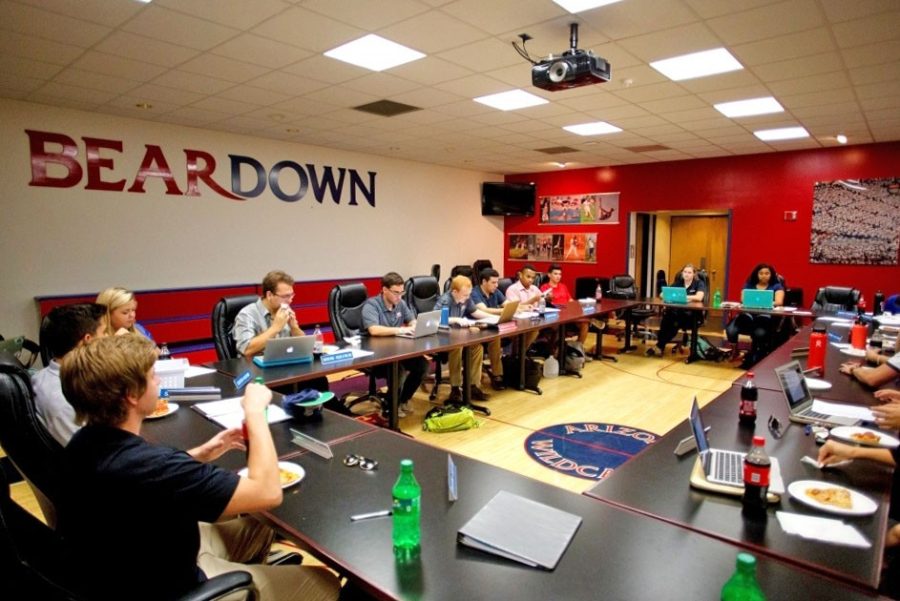*Editor’s Note: This article appeared in the Daily Wildcat’s 2017 Orientation Guide.
The Associated Students of the University of Arizona, the UA’s student government, has a hand in nearly every program and resource available for students on campus.
“A lot of students don’t really know what we do until they need us or one of our programs,” said Matt Lubisich, ASUA president. “Now that I’m running the wheel I really want to focus on getting our name out there.”
ASUA is composed of three branches including the administrative, executive and presidential cabinets.
The administrative cabinet deals with programs such as ASUA Pride Alliance, a group that offers resources for LGBTQA students, and Students for Sustainability, which encourages students to make environmentally-friendly decisions on campus.
ASUA’s executive cabinet deals with club funding, allocating $200,000 to more than 600 clubs around campus annually.
The presidential cabinet also consists of ZonaZoo and The Wildcat Events Board.
RELATED: New ASUA president details plans for 2017-2018 academic year
According to Lubisich, most of ASUA’s funding comes from student tuition fees and is directed towards clubs and events that run throughout the year.
“Our biggest focus is on student advocacy,” Lubisich said. “ASUA can be helpful for any issue a student may have.”
For example, DACA students have come to ASUA expressing their concerns about the presence of border patrol on campus, expressing fear for their safety, according to ASUA Administrative Vice President Lorenzo Johnson.
“Any student is welcome at ASUA Senate meetings to talk about the issues they encounter on campus,” he said.
ASUA lobbied the administration on behalf of DACA students, arguing border patrol wasn’t necessary on campus, Lubisich said.
“We’re still dealing with this issue because the university has a multi-million dollar contract with border patrol,” he said. “I agree with the DACA students’ concerns, and that’s why we’re going to continue to work on this.”
Senate meetings are important for bringing up these issues and are open to the public every Wednesday during the semester.
RELATED: ASUA hosts internship, engagement opportunities
“We have meetings for concerns, and it’s a great place to have a platform if you want change,” said Johnson. “The library technology program was an idea spawned by a senator years ago, and now we have 800 pieces students are able to utilize.”
Lubisich agreed that coming to ASUA to express issues is beneficial to students.
“Say a student needs to go to counseling, and they don’t have the funds; we try to work with the Dean of Students to create an emergency funding platform,” he said. “Any issues students come to ASUA with, I bring up with administrators, saying ‘this is what’s going on, these are the problems and here’s how we can fix it.’”
Johnson said incoming freshman looking to get involved in ASUA should join campus advocacy groups.
“We have Freshman Class Council, which accepts 50 freshman and gives them the opportunity to shadow members of ASUA, help the community and volunteer,” he said. “Outside of that, join clubs where you can get leadership experience.”
Lubisich added that ASUA is a great place for students whether they are interested in getting involved or need an ally.
According to Johnson, this is what makes participating in ASUA so rewarding.
“No matter what you do you have a tangible affect on students,” he said. “Student issues are ever-changing. Whether it be mental health or food security, being able to tackle those challenges and issues is the most rewarding experience.”
Follow Jessica Blackburn on Twitter.








